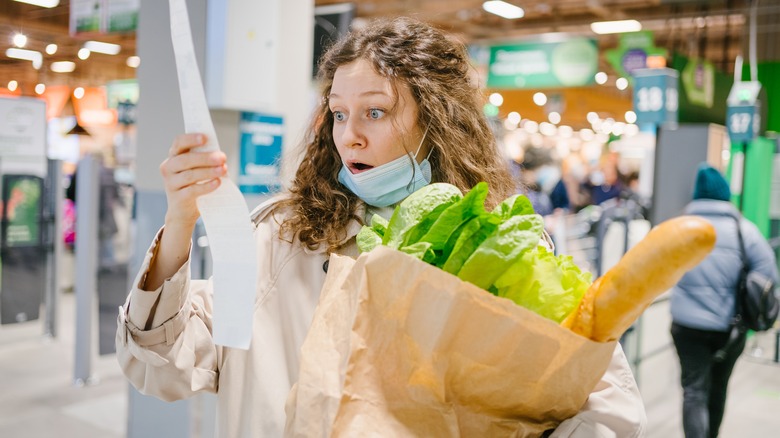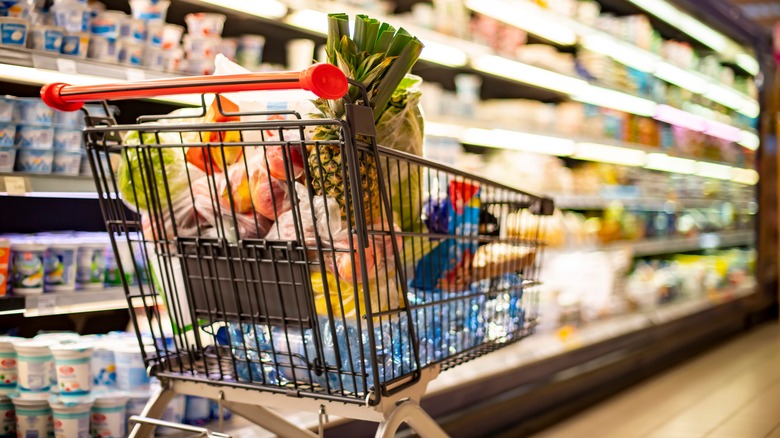New Data Shows How Food Inflation Is Impacting High Income Shoppers
Having an expendable income can make affording life's little luxuries much easier. But what happens when the essential items everyone needs start to feel like they cost the same as those luxuries? Due to a combination of circumstances involving the COVID-19 pandemic, climate change, and the war between Russia and Ukraine, the costs of everyday essentials like gas and food have skyrocketed in the past year. Even families with above-average household incomes are feeling the impact on their budgets. According to a report from Dunnhumby Consumer Trends Tracker, inflation of food costs is hitting Americans hard. So hard in fact, that the majority of people believe the rate of inflation is even higher than it already is. While the Bureau of Labor Statistics has tracked food inflation at 13.1% from this time last year, Dunnhumby reports that surveyed Americans guessed it was at 22.8%, nearly 10 points higher than it really is.
This misconception is likely due to how hard recent inflation has hit families' bottom lines; a problem which is not limited to households struggling with food insecurity. Dunnhumby's report noted that 31% of households have skipped or reduced the size of meals in the last year due to economic reasons, even though the U.S. Department of Agriculture (USDA) reports that only 10.2% of households in the country struggled with food insecurity in 2021.
Cutting back spending
So what are these shoppers doing differently besides cutting back on their meal size? According to Dunnhumby, 73% of households making over $100,000 (according to the U.S. Census Bureau, the median household income in the U.S. is about $65,000) said they prioritize shopping in stores with low prices; a figure which has increased by 7% this year. This data tracks with consumer trends seen by Walmart and Target this past summer, when the two big box chains saw sales (and therefore profits) dip on discretionary spending and electronics but jump significantly in groceries and household essentials like toiletries. Additionally, CNN reports that consumers are becoming more choosy, checking prices online before they shop, and often opting to buy store brands or less expensive name brands when given the opportunity to substitute. This bargain shopping and a desire to decrease money spent on delivery fees and tips have led to a decrease in users for delivery services like Instacart, which saw a boom in business during the peak of the pandemic.
Finally, CNN notes that food splurges like hosting dinner parties and eating out at restaurants are being cut from many household budgets, while Insider notes that people who eat out are more regularly choosing less-pricey chain restaurants like Olive Garden and Chipotle to keep their food spending down.

